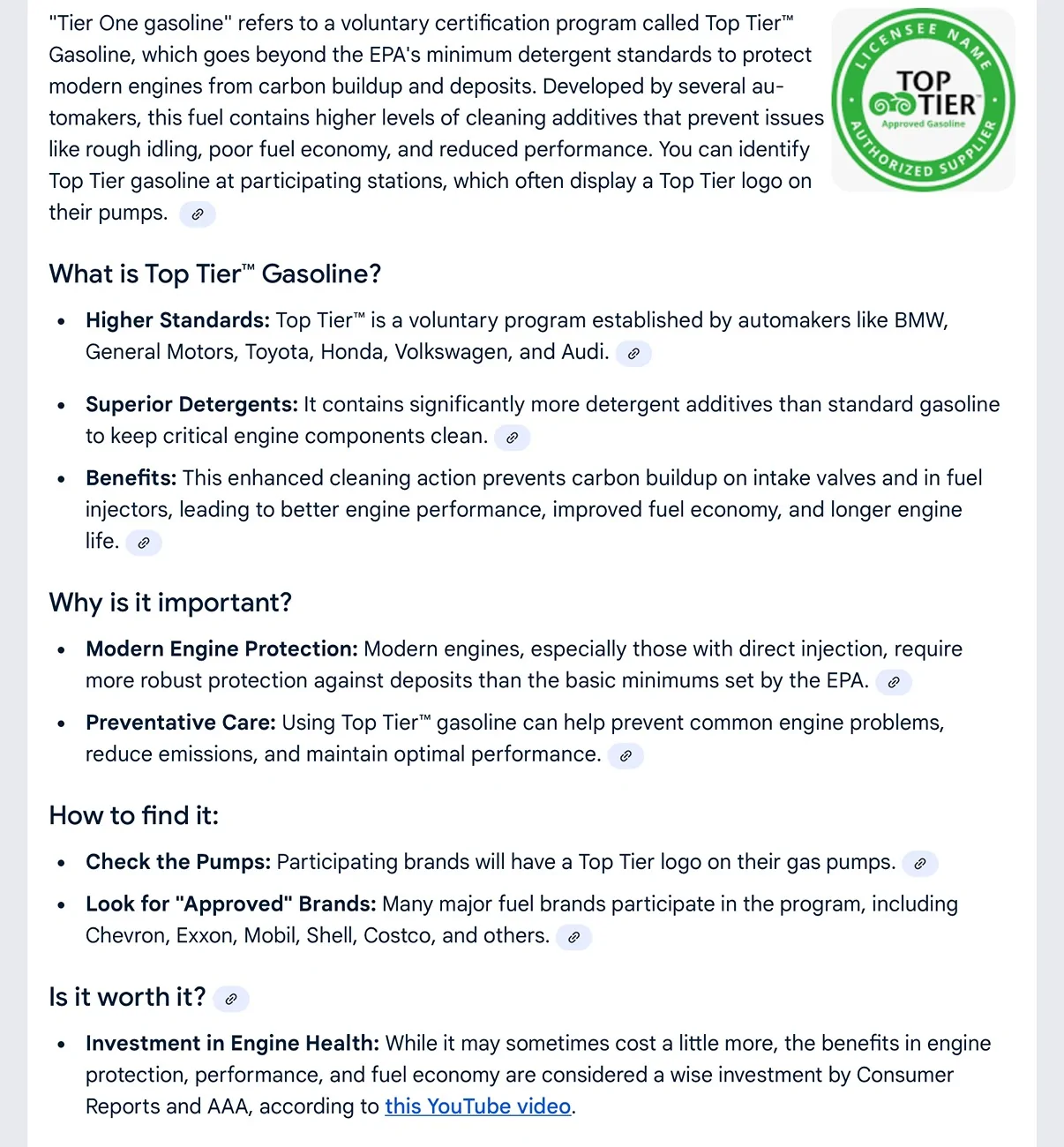I suspect for my use, not really towing or anything I should probably stick with 87 and maybe every 5th tank fill it with 93 to clean it up a bit. I might be wrong, I'm still learning about this, so if there is no benefit using the 93 as far as helping keep crap out, then let me know, I'll save the 21 extra dollars 
Sponsored

